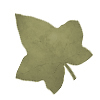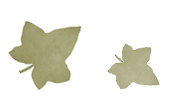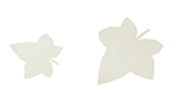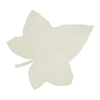


|
A perennial evergreen, up to 45cm high, with small grey-green aromatic leaves and pale purple, pink or white flowers. The upper stem is much branched, and the root is woody. There are numerous varieties of thyme, and the common thyme is believed to have derived from wild thyme or mother-of-thyme -Thymus serpyllum. Attracting bees in profusion, the flowers of thyme give a distinctive flavour to the honey. The Ancient Egyptians used thyme in the embalming process, the Ancient Greeks used it to fumigate against infectious illness, and the Romans burned the plant, believing the fumes would repel scorpions and “all such creatures”. The plant was well known to Hippocrates and Dioscorides, and Culpeper (1616-1654) praised it as “a notable strengthener of the lungs, as notable a one as grows; neither is there a better remedy growing for that disease in children which they commonly call chin-cough [whooping cough]” Thyme tea makes a good tonic for exhaustion, and drunk as a cold tea can help relieve headaches. It is also useful at relieving urinary infections and water retention. Use in the bath to remedy exhaustion, insomnia, anxiety, and depression, or to help relieve chest problems such as asthma and bronchitis. The fresh, crushed leaves are useful in healing minor wounds and curing warts. The oil is useful for remedying muscular aches, pains, and stiffness, cellulitis, poor circulation, rheumatism, arthritis, and sports injuries. Thyme, and its oil, have a marked tonic effect, which supports the body’s normal functions, and helps counter the effects of ageing. Research suggests that the strong anti-oxidant properties may help maintain higher levels of essential fatty acids within the brain, and it has long been believed that thyme helps to revive and strengthen body and mind, and is known to enhance the immune system and help the body fight infection. A most effective antifungal and antibacterial, thyme is used to treat fungal infections, ringworm, thrush, athletes foot, scabies and lice - and as an expectorant it is effective at expelling intestinal worms. Thyme extracts have shown strong antibacterial activity against the bacterium often associated with stomach ulcers, and its antiseptic and antiviral properties lend themselves well to cough syrups and remedies - or prepare an infusion to use as a gargle for sore throats, or as a mouthwash. Thyme is often prescribed with other herbs for treating asthma - for the wheeziness, and shortness of breath symptoms, Andrew Chevallier [in Encylcopedia of Medicinal Plants...] suggests an infusion of 15g thyme and 15g nettles to 750ml of water - which should be sipped throughout the day. Thyme can also provide relief for hay fever sufferers. The marvellous antiseptic, antimicrobial, bactericidal, and fungicidal properties have been well noted and researched : “...an aqueous solution of the essential oil of Thyme kills the typhus bacillus, and Shiga’s bacillus - responsible for epidemic dysentery - in 2 minutes: streptococcus and the diphtheria bacillus within 4; and the tuberculosis bacillus in 30-60 minutes...” [Barbara Griggs - The GreenWitch] and it certainly beats today's over-fragranced, artificial cleaning solutions which often cause more harm to the surrounding humans and animals (and plants!) - even if just in the discomfort caused by the fumes. A strong infusion of Thyme is suitable for wiping down food shelves and cupboards. Other particularly effective herbs in the disinfectant department are Tea-Tree, Sage, Rosemary, and Lavender. Place under the pillow to prevent nightmares. Inhale to stimulate conscious mind. ! Essential oil best avoided during pregnancy ! |
|

Gaia's Garden Library
Non Fiction Section : Gaia's Garden Herblore | Susun S. Weed Articles | Articles and Musings
Fiction Section : Short Stories & Prose| As Told
By Cat | Public Domain Texts| Poetry
Shop | Library | Gallery | Forum | Contact | Links







